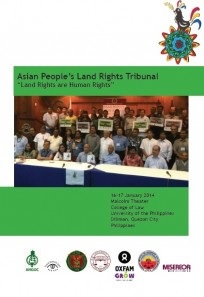'With only our voices, what can we do?': Land confiscation and local response in southeast Myanmar. - Texts, maps and video (English, Karen Burmese (မြန်မာဘာသာ)
Villagers in Karen areas of southeast Myanmar continue to face widespread land confiscation at the hands of a multiplicity of actors. Much of this can be attributed to the rapid expansion of domestic and international commercial interest and investment in southeast Myanmar since the January 2012 preliminary ceasefire between the Karen National Union (KNU) and the Myanmar government. KHRG first documented this in a 2013 report entitled ‘Losing Ground’, which documented cases of land confiscation between January 2011 and November 2012.







